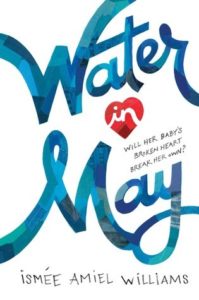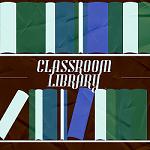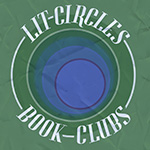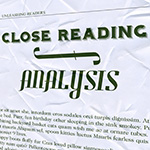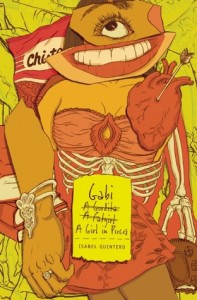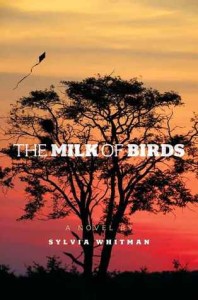Water in May
Author: Ismée Amiel Williams
Published September 12th, 2017 by Abrams Books
Summary: Fifteen-year-old Mari Pujols believes that the baby she’s carrying will finally mean she’ll have a family member who will love her deeply and won’t ever leave her—not like her mama, who took off when she was eight; or her papi, who’s in jail; or her abuela, who wants as little to do with her as possible. But when doctors discover a potentially fatal heart defect in the fetus, Mari faces choices she never could have imagined.
Surrounded by her loyal girl crew, her off-and-on boyfriend, and a dedicated doctor, Mari navigates a decision that could emotionally cripple the bravest of women. But both Mari and the broken-hearted baby inside her are fighters; and it doesn’t take long to discover that this sick baby has the strength to heal an entire family.
Inspired by true events, this gorgeous debut has been called “heartfelt, heartbreaking and—yes!—even a little heart-healing, too” by bestselling YA novelist Carolyn Mackler.
About the Author: Ismée Williams is a pediatric cardiologist who practiced at the Columbia University Medical Center in the Washington Heights neighborhood of New York City for fifteen years. She currently sees patients at Montefiore Hospital in the Bronx. As the daughter of a Cuban immigrant, partially raised by her abuelos, her background helped her understand the many Maris she met along the way. Water in May is her first novel.
Praise:
“Full of spot-on cultural texture and packing an emotional punch, this is an unusual take on the teen-pregnancy problem novel… Williams presents her experience in a way that demands not pity but respect while also reminding readers of Mari’s heartbreaking youth and innocence at unexpected times…Fierce and tender—and absolutely worth reading.” — Kirkus, STARRED REVIEW
“Mari is a deeply credible character, a girl who’s always spoiling for a fight, usually a physical one, but who’s turning that impulse into fighting for her baby. Williams, formerly a pediatric cardiologist at Columbia, brings vivid authenticity to the medical side of things, including the details of life with a baby in the NICU and the varying personalities of health care personnel.” — Bulletin of the Center for Children’s Books
“This novel is realistic and compelling, heartfelt and heartbreaking all at the same time. The author’s experience as a pediatric cardiologist brings authenticity to her writing as much as does her experience of navigating cultural barriers. Young adult readers will connect with Mari’s feisty personality, strength, and vulnerability.” — VOYA Magazine
Review: Mari’s story is one that isn’t often told. Mari is someone most people would see on the streets and would try to ignore because getting to know her would be getting to know how hard life in America can be. But Mari is also someone who is stronger than many of us will ever be. Her story is one that will make readers think about assumptions OR will help readers see a mirror into struggles they may be having in life. Although I hope teens don’t see Mari’s story as an invitation for a teenage pregnancy, I believe the truth of her hardships show the tremendous change a baby brings to life and will show that Mari’s decisions are made out of desperation when there are other paths she could have taken. Some who read the book have said they don’t like Mari as a character, but I found that when Mari was frustrating, it was because she was acting like what she is: a fifteen-year-old girl trying to find her place in this crazy world.
Teachers Guide with Activities and Discussion Questions written by me:
Guide can also be accessed through Abrams Books’s Resource Page.
Recommended For:
**Thank you to Ismée Williams for finding me and allowing me to complete this guide!**
